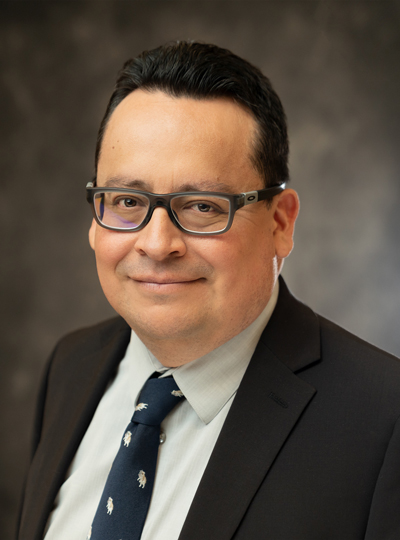In the past 10 years, the tobacco marketplace has dramatically changed in the US. US tobacco use patterns have changed dramatically due to regulations discouraging use of cigarette and other combustible products use, as well as the rapid evolution and marketing of novel nicotine and tobacco products. Project 1 will harmonize and extend well-established CAsToR tobacco simulation models to examine the impact of FDA regulatory actions on future trends in cigarette, cigar, ENDS, and other novel tobacco product use and associated health outcomes. This project will focus on Behavior (Aim 1), Impact Analysis (Aims 2 and 3) and Health Effects (Aims 2 and 3) as Scientific Domains (RFA-OD-22- 04). Project 1 has three aims:
Aims
- Aim 1: Estimate ENDS flavor restrictions’ effects on youth and adult smoking and vaping.
- Aim 2: 2a.Test whether responses to flavor restrictions vary across urban vs. rural jurisdictions. 2b. Assess the extent to which this might be explained by geographic factors (e.g., proximity to jurisdictions that allow flavored ENDS sales) vs. differences in resident characteristics. 2c. Estimate implications for both urban-rural and demographics in smoking and vaping.
- Aim 3: Assess how flavor restrictions’ effects vary between localities with more vs. less restrictive tobacco control policy environments, and estimate the implications for the effectiveness of a federal flavor ban in light of observed variation in local policies.
- Aim 4: Provide rapid analyses of new federal flavor regulations’ relationships to tobacco/nicotine product sales.
Leads
 Rafael Meza, PhDRutgers University
Rafael Meza, PhDRutgers University- Rafael Meza, PhD
- Rutgers University: Adjunct Professor
- Positions: CAsToR Principal Investigator; Co-Lead, Research Project 1; Co-Lead, Research Project 4; Co-Lead, Administrative (ADMIN) Core
- RU: cinj.orgUM: sph.umich.eduUM Experts: experts.umich.edu
- Dr. Meza is Principal Investigator of the Center for the Assessment of Tobacco Regulation (CAsToR) and the Coordinating Principal Investigator of the Cancer Intervention and Surveillance Modeling Network (CISNET) Lung Working Group. He is an Adjunct Professor at the Rutgers Cancer Institute, with an appointment in the Rutgers Robert Wood Johnson Medical School Department of Medicine, Section of Cancer Epidemiology and Health Outcomes. He is also a Distinguished Scientist at the British Columbia Cancer Research Institute and Distinguished Scholar in Lung Cancer Screening and Prevention at the University of British Columbia. Previously, Dr. Meza was Professor of Epidemiology and Global Health at the University of Michigan and co-Leader of the Cancer Control and Population Sciences of the Rogel Cancer Center. Dr. Meza’s research interests lie at the interface of epidemiology, biostatistics and biomathematics. He is an expert in lung cancer epidemiology and prevention, and tobacco epidemiology and control. The goal of his research program is to characterize the impact of disease prevention and control interventions, informing stakeholders and policymakers as to the most effective and efficient ways to improve population health. In particular, he is interested in cancer risk assessment and the analysis of cancer epidemiology data using mechanistic models of carcinogenesis. He is also interested in the mathematical modeling of chronic and infectious disease dynamics and its applications in disease prevention public health policy design.
 David Levy, PhDGeorgetown University
David Levy, PhDGeorgetown University- David Levy, PhD
- Georgetown University: Professor, Georgetown University Medical Center
- Positions: CAsToR Principal Investigator; Co-Lead, Administrative (ADMIN) Core; Co-Lead, Research Project 1; Co-Lead, Research Project 3; Co-Investigator, Research Project 4
- Webpage: globalhealth.georgetown.edu
- Dr. David Levy is PI for CAsToR at Georgetown University and co-lead of Projects 1 and 3, and the Policy Analysis and Dissemination Core. He received his PhD in Economics from UCLA (USA), and is currently a Professor of Oncology at Georgetown University. He has published over 250 articles, in renowned journals such as the American Economic Review, BMJ, AJPH, JAMA, The Lancet, Tobacco Control, and PLOS Medicine. He has been principal investigator of grants from the CDC, WHO, the National Cancer Institute, and Bloomberg/Gates Foundation. Dr. Levy currently oversees the design and development of the SimSmoke tobacco policy simulation model, for which he has developed models for over 40 countries covering 85% of the world’s population, and has recently developed models of smokeless tobacco and e-cigarette use. In addition to being a principal investigator on the TCORS grant, he is currently a principal investor on a National Cancer Institute grant with the International Tobacco Control Policy Evaluation Project (theITCProject) in which he has developed models of e-cigarette use for Canada, England and France; and is a principal investigator on the National Cancer Institute CISNET Lung Group. He has recently published articles providing a public health framework for evaluating e-cigarettes and showing the potential benefits of e-cigarettes, as well as papers on the cigarette and e-cigarette markets.
 Luz Sanchez RomeroGeorgetown University
Luz Sanchez RomeroGeorgetown University- Luz Sanchez Romero
- Georgetown University: Assistant Professor
- Position: Co-Lead, Research Project 1
- Roles: New Investigator, Research Scientist
- Webpage: georgetown.edu
- Dr. Luz Sánchez Romero serves as a co-lead for Research Project 1. She is an Assistant Professor in the Department of Oncology at Georgetown University School of Medicine and a member of the Cancer Intervention and Surveillance Modeling Network (CISNET) Lung Working Group. Dr. Sánchez Romero research focuses on the development, adaptation and implementation of population simulation models, with the goal to assess the potential health impact of non-communicable diseases risk factor preventive policies. She is an expert in the epidemiology of risk factors such as tobacco and obesity and its impact on Chronic Obstructive Pulmonary Disease and Cardiovascular Disease at a national and international level. In particular, my interest lies in providing evidence-based and expert-informed modeling of the behavioral and public health impacts of tobacco regulations.